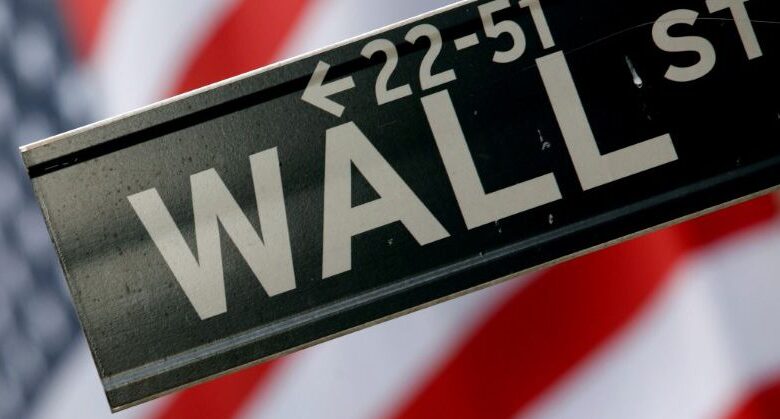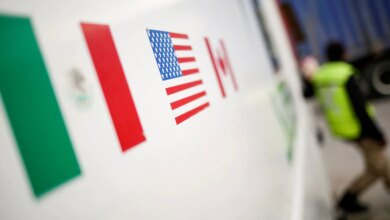Wall Street swoons on rising Treasury yields, growing inflation worries

NEW YORK, Sept 28 (Reuters) – Wall Road shares ended sharply decrease on Tuesday in a broad sell-off pushed by rising U.S. Treasury yields, deepening issues over persistent inflation, and contentious debt ceiling negotiations in Washington.
All three main U.S. inventory indexes slid practically 2% or extra, with rate of interest delicate tech and tech-adjacent shares weighing heaviest as traders misplaced their danger urge for food.
It was the S&P 500 index’s largest one-day share drop since Might, and the Nasdaq’s largest since March.
The S&P 500 and the Nasdaq Composite index had been on observe for his or her largest month-to-month declines since September 2020.
“The massive image is the sudden surge up to now week of yields, which has led to a ‘promote first, ask questions later’ mentality,” Ryan Detrick, senior market strategist at LPL Monetary in Charlotte, North Carolina.
“(However) there are a number of components weighing on sentiment right now,” Detrick added. “The back-and-forth in Washington with the debt ceiling and the spending invoice and potential greater taxes have weighed on total investor psyche and has led to a reasonably good sized sell-off.”
The benchmark index was additionally setting a course for its weakest quarterly efficiency because the COVID pandemic introduced the worldwide economic system to its knees.
Weak spot pervaded throughout most asset lessons, together with gold, suggesting widespread risk-off sentiment.
U.S. Treasury yields continued rising, with 10-year yields reaching their highest stage since June, as inflation expectations heated up and fears grew that the U.S. Federal Reserve may shorten its timeline for tightening its financial coverage.
Treasury Secretary Janet Yellen stated she anticipated inflation to finish 2021 close to 4% and warned lawmakers their failure to avert a authorities shutdown because the nation strikes nearer to exhausting its borrowing capabilities may trigger “critical hurt” to the economic system.
Senate Republicans appeared set to strike down Democrats’ efforts to increase the federal government’s borrowing authority and keep away from a possible U.S. credit score default.
A Convention Board report confirmed shopper confidence weakened unexpectedly in September to the bottom stage since February.
The Dow Jones Industrial Common fell 569.38 factors, or 1.63%, to 34,299.99; the S&P 500 misplaced 90.48 factors, or 2.04%, at 4,352.63; and the Nasdaq Composite dropped 423.29 factors, or 2.83%, to 14,546.68.
Half of the S&P 500’s elements closed 10% or extra beneath their 52-week highs. That included 63 shares that had fallen 20% or extra.
Among the many 11 main sectors of the S&P 500, all however vitality ended purple, with tech and communications companies struggling the steepest share losses.
Communications companies shed 2.8%, the sector’s largest one-day share decline since January. The S&P development index closed at its lowest since July and posted its largest one-day share drop since February.
Microsoft Corp , Apple Inc , Amazon.com Inc and Alphabet Inc weighed heaviest on the S&P and Nasdaq, falling between 2.4% and three.6%.
Ford Motor Co was one of many few brilliant spots, advancing 1.1% on information that it might be part of Korean battery accomplice SK Innovation to take a position $11.4 billion to construct an electrical F-150 meeting plant and three U.S. battery crops.
Declining points outnumbered gainers on the NYSE by a 4.35-to-1 ratio; on Nasdaq, a 4.52-to-1 ratio favored decliners.
The S&P 500 posted 17 new 52-week highs and 5 new lows; the Nasdaq Composite recorded 54 new highs and 120 new lows.
Quantity on U.S. exchanges was 12.27 billion shares, in contrast with the ten.37 billion common over the past 20 buying and selling days.
Reporting by Stephen Culp; Extra reporting by Noel Randewich and Sinead Carew in New York and Devik Jain in Bengaluru; Enhancing by Richard Chang
:





